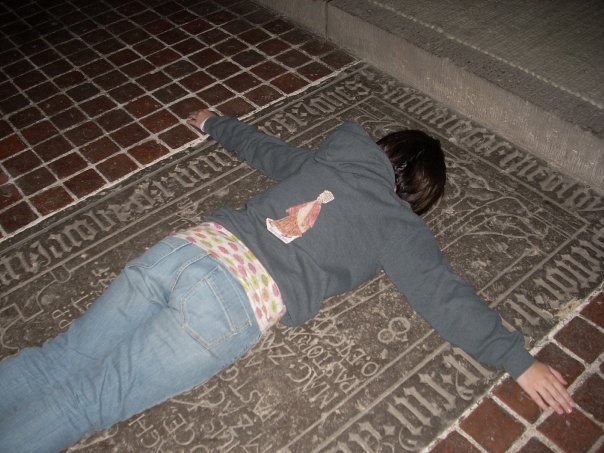"Bill Pilgrim has come unstuck in time." He has been captured by the Tralfamadores, time traveling extra terrestrials. While aboard the flying saucer, he journeys through various scenes from his his past. Many of these moments are reflections of Billy Pilgrim's experiences as a prisoner of war. He witnessed and was one of the few survivors bombing of Dresden. Slaughterhouse-Five is constructed similarly to the way the fictional Tralfamadores' books are made:
"...each clump of symbols is a brief, urgent message—describing a situation, a scene."Each of the scenes in Slaughterhouse-Five is rarely more than two pages long.
"We Tralfamadorians read them all at once, not one after the other. There isn't any particular relationship between all the messages, except that the author has chosen them carefully, so that, when seen all at once, they produce an image of life that is beautiful and surprising and deep."The book is not organized chronologically or, as far as I can tell, in any particular order at all. Although we can't read it all at once, because the timeline is so scrambled, it feels like you're swallowing it all whole. There is no doubt Slaughterhouse-Five is displays life as "beautiful and surprising and deep."
"There is no beginning, no middle, no end, no suspense, no moral, no causes, no effects."It's hard to imagine any novel with such qualities, but trust me, Vonnegut pulls it off in Slaughterhouse Five.
"What we love in our books are the depths of many marvelous moments seen all at one time."I believe this is the first story I've read that was simply a collection of "marvelous moments." Of course I've read stories that do not take place chronologically, but those novels were written in that fashion very purposefully. Those books typically had some type of mystery in which the main character must mentally or physically revisit past scenes to find clues, or the literal or figurative time travel was device the writer used to give more insight to the characters past to support the way they're current emotions, reactions, etc. Never have I read a book that feels this spontaneous.

No comments:
Post a Comment